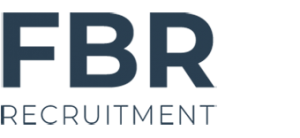
There are many different ways you can write a CV for construction job roles. A CV is an important part of applying for new jobs. It provides you with the opportunity to showcase your skills and sell yourself to a potential employer.
CVs are part of recruitment processes, and here at FBR we see a lot of them. Knowing how to write a CV for construction jobs is an important skill. Not every role is the same so learning how to enhance your CV for each job can put you ahead of your competition.
There are fundamental parts of any CV. Let’s look at the essentials and then dive into construction specific CVs.
Basic CV requirements
Every CV will need to have some basic requirements. These are;
- Contact information: a potential employer or recruiter will need to know how to contact you for interviews and with the good news of a job offer.
- About you: provide your recruiter or potential employer a brief overview of who you are. This will help them get to know you and make a quick judgement if you would be a good fit for the team. After all, many employers now are focused on looking for the right candidate who they can skill up and train, over someone who wouldn’t fit in with the team.
- Experience: this is where you provide an overview of your experience in the industry. If you are just starting out, you can include previous experience in other roles and link any and all transferable skills.
- References: be sure to include any references or have the following sentence “happy to provide references upon request.” Most recruitment companies will either ask for the references beforehand. And typically your most recent employer will be one of the references.
Once you have an outline of your CV you can begin to build and expand on it. Adding in qualifications and other relevant information is beneficial.
Construction specific CVs
All CVs can look similar, but having a generic CV is a little dated. Personalising your CV to include industry specific information is key.
If you have industry specific qualifications be sure to include those, and even put them above other qualifications. GCSEs and other qualifications are important, but highlighting industry specific qualifications is better.
If you have worked on specific projects that required key skills, write about them in the experience section. Highlight your relevant skills and experience as much as possible.
The key thing to remember with CVs is to make sure they match the role you are applying for. Whether that is with experience, transferable skills, or a personality match.
How to format your CV for construction jobs
At the top of your CV include a title that links to the industry and job role you are applying for. This makes it easy to place and the employer or recruiter knows what they are looking at.
After that, the next place to go when formatting your CV is the contact information. This includes your name, date of birth, email address, and phone number. You can include a short bio, or have a personal statement here too. This way everything about you is in one palace.
Begin to build out the rest of your CV with qualifications, remember to keep industry specific ones at the top. Include previous job roles and explain in short your responsibilities. Highlight any transferable skills such as communication, operating systems, attention to detail, working independently etc.
Once you have completed the main base of your CV you can then begin to play around with it. Add details you think would make an impact on your application. All the while highlighting your qualifications, experience, skills and achievements.
Instead of making a CV on a basic word document, try heading over to Canva. There are many templates you can use to elevate your CV.
CV tips and tricks
When looking at a specific job role, review the job description and make sure to add any buzzwords and details that have been used and apply to you.
Create a portfolio of your previous work. This is a great way to showcase your skills and projects you have worked on. On each image you can detail the scope of the project as well as your specific involvement.
Include a skills bar chart. What this means is that you look at your current skill set and quantify your current level. Rate yourself out of 5 and include a bar chart of those skills, this is a really easy way to gain some attention as well as provide insight into where you rate yourself.
Make your CV skimmable. Recruiters and employers get many, many CVs and job applications a day. Making it easy to read and skimmable means that the relevant information is easy to find and puts you at a higher chance of getting an interview.
Don’t be afraid to add design to your CV. Depending on where you are applying to, adding a design and formatting your CV to be different from a standard white page can help you stand out from the crowd. It also shows that you have put in time and effort, and have great attention to detail. All of these skills are key in many construction jobs. First impressions count, so make sure your CV is a great first impression.
Writing a CV for construction job roles is relatively easy, it just takes time and a little effort. Once you have interviewed or spoken to a potential employer, you can always ask for feedback. Getting feedback on your CV can be extremely helpful as you continue to search for construction jobs.
If you are looking to find your next job contact FBR. Our recruitment experts are on hand to help you find the right role. Contact us now, or visit our Jobs Board.



